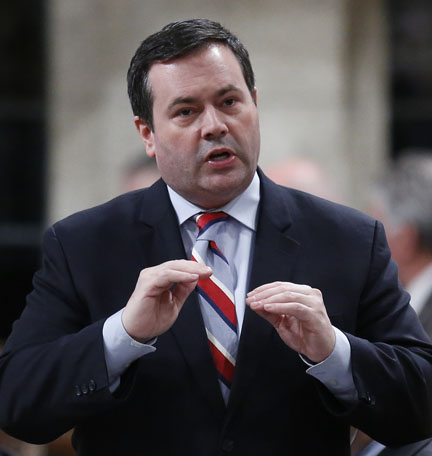The Canadian government announced tighter rules on Monday to prevent employers from using its temporary foreign worker program to squeeze Canadians out of jobs, acting after two high-profile cases tarnished the program’s reputation.

The new rules will prevent employers from paying foreign workers less than Canadians, and will ensure employers who rely on temporary foreign workers have a “firm plan” in place to transition to a Canadian labour force.
However, nothing in the government announcement suggested the government will prevent fast-food restaurants and others from using the program to hire low-skilled workers, a practice that labour unions say must stop.
“These reforms will require that greater efforts be made to recruit and train Canadians to fill available jobs,” Citizenship and Immigration Minister Jason Kenney said in a statement.
“They will also help ensure the temporary foreign worker program is only used as intended — to fill acute skills shortages on a temporary basis.”
Canadian unemployment is seven per cent nationally, but there are labour shortages in some areas and in some professions, and employers that demonstrate they cannot find enough Canadian workers are allowed to bring in foreign workers.
The program was designed mainly to bring in cheap agricultural workers. But it has expanded rapidly to fill shortages elsewhere, both high-skilled positions in the booming resource sector and low-skilled fast-food jobs.
Bank of Canada Governor Mark Carney weighed into the debate last week by saying the program should be used primarily for high-skilled jobs and over-reliance on it for low-skilled jobs can prevent needed market adjustments through higher wages.
Alberta Federation of Labour President Gil McGowan told a news conference what was really needed was to stop bringing in unskilled workers, and that pizza and burger shops cannot find Canadian workers because they don’t pay enough.
“The solution is to increase wages, not to open the flood gates through the temporary foreign worker program,” he said, adding it was ironic that a pro-free-market Conservative government was effectively depressing wages.
Opposition New Democratic Party leader Thomas Mulcair told Parliament: “Their message is still work for less, or you’ll be replaced.”
The program exploded into the news this month with word Canada’s largest bank, Royal Bank of Canada, was using temporary foreign workers hired by U.S. outsourcing firm iGate, effectively to replace existing staff.
In an open letter, RBC Chief Executive Gord Nixon subsequently apologized for not being more sensitive to Canadian employees. But he also said the bank had complied with regulations, and iGate said its hiring practices were fully compliant with Canadian law.
The program also came under the spotlight with word last year that a majority Chinese-owned company had listed Mandarin as a language requirement for 201 jobs at the Murray River coal mine in the interior of British Columbia.
The company involved is HD Mining International Ltd, in which China’s Huiyong Holdings Ltd. holds a 55-per-cent stake, Canada’s Dehua Lvliang International Mines Group Inc. 40 per cent, and an unnamed party five per cent. nHD Mining said last year it had tried to hire locally but had been unable to find people with the skills to operate the specialized mining equipment, currently used in China, that will be used at the Canadian mine.
The government addressed that HD Mining controversy with a new rule that English and French will now be the only languages that can be used as a job requirement.
It will also introduce fees for employers for processing the paperwork needed to authorize temporary foreign workers, and will add questions to ensure the program is not used to facilitate the outsourcing of Canadian jobs.

 The new rules will prevent employers from paying foreign workers less than Canadians, and will ensure employers who rely on temporary foreign workers have a “firm plan” in place to transition to a Canadian labour force.
The new rules will prevent employers from paying foreign workers less than Canadians, and will ensure employers who rely on temporary foreign workers have a “firm plan” in place to transition to a Canadian labour force.